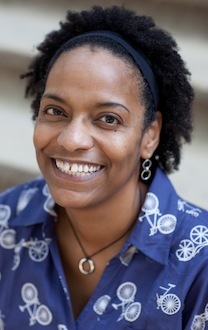Study to compare Wisconsin and Illinois legal access for poor
Does a parent who faces jail time for falling behind on child support payments have the right to a court-appointed attorney?
Not necessarily, according to the U.S. Supreme Court. But the court ruled in the 2011 case Turner v. Rogers that, short of providing full legal representation, states must implement “adequate procedural safeguards” to ensure low-income litigants representing themselves in civil contempt proceedings aren’t wrongfully incarcerated. In other words, the state can’t jail a civil litigant for being too poor to present an adequate defense.

Tonya Brito
Tonya Brito, a University of Wisconsin Law School expert on poverty and law, wants to understand how safeguards implemented in the wake of the Turner decision are working for litigants. Along with David Pate, a UW-Milwaukee researcher, she has received a $141,000 award from the National Science Foundation to study the mechanisms at play among states offering legal assistance in civil contempt proceedings.
The funding allows the researchers to compare the experiences of poor litigants in Wisconsin, a state that provides attorneys for indigents in civil contempt proceedings, to those in Illinois, where legal assistance measures are designed to help litigants represent themselves.
Brito and Pate, both faculty affiliates with the Institute for Research on Poverty, have already completed some of their Wisconsin fieldwork.
“As we analyze our Wisconsin data, we’re finding that the vast majority of low-income litigants do not take advantage of the legal counsel the state makes available to them,” Brito says. “We’re trying to figure out why.”
According to Brito, the point of the study is not to determine if lawyers matter, but instead to figure out how lawyers matter compared to the other options available for indigent litigants. She feels the Turner case points to a larger issue facing Americans today: poor people are slipping through the cracks in the legal system.
“There are an increasing number of people in our country with unmet legal needs,” Brito says. “The legal system is trying to address the problem, but not everyone agrees which remedies work best.”
—Tammy Kempfert
Tags: law, Law School, poverty




